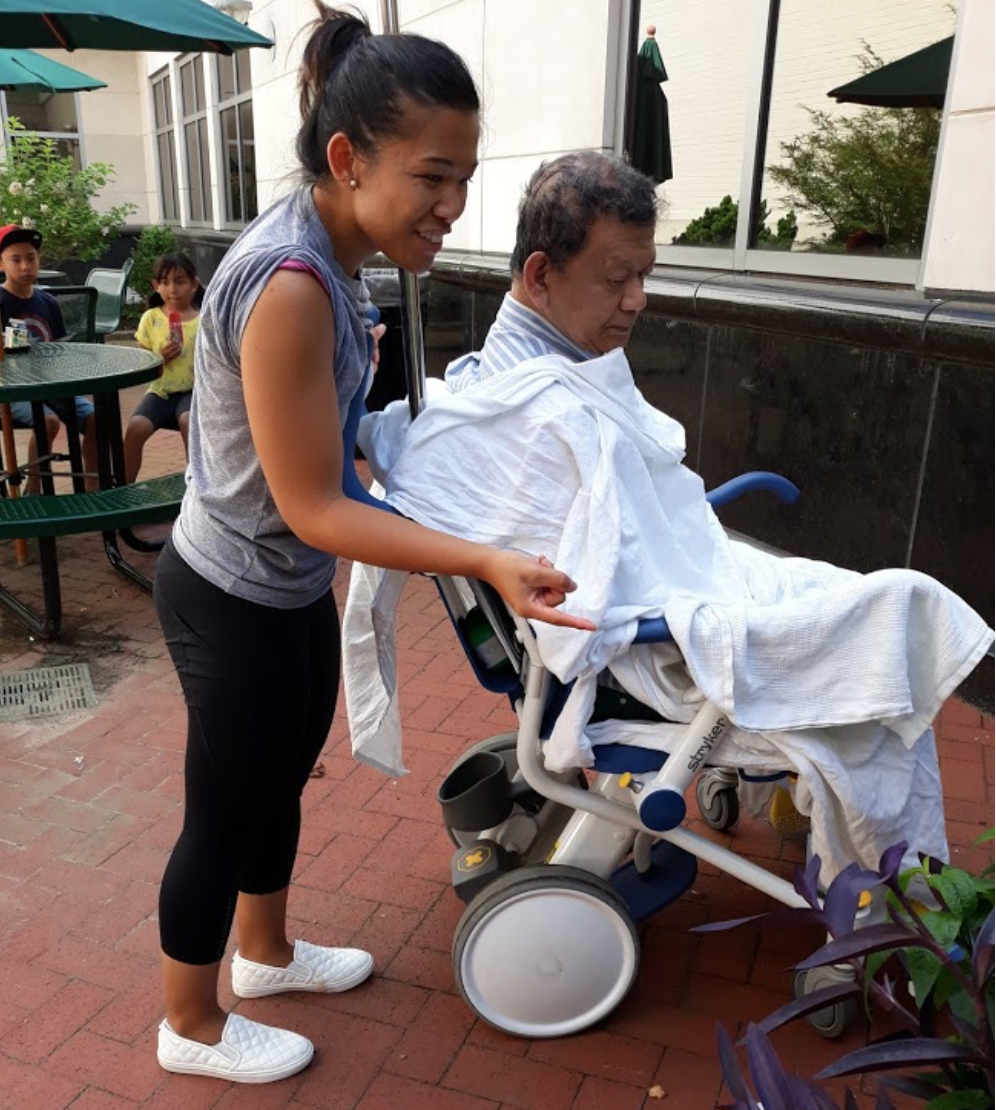In the emergency room when we found out about my dad’s brain tumor, only a handful of people were in the room: the doctor who read the CT scan, my father, my mother, me, and my oldest sister Marissa who video-calling us on the phone. I remember looking around and seeing the shock on everyone’s faces. And immediately after the call, Marissa cancelled her upcoming vacation to Mexico, booked a flight from San Diego to Pittsburgh, and was at the hospital with us within 48 hours.
Over the course of the three months after our father was diagnosed with Grade IV Glioblastoma, Marissa was able to rearrange her work and doctorate studies and fly across the country ten times (5x round trip). Having graduated with a nursing degree and spending over ten years in the hospital wearing different hats, her experience and knowledge was crucial for keeping up with all of our dad’s prescriptions, observing odd behavior, pinpointing which medications may be causing negative symptoms, and suggesting other treatment options and innovative research studies to the neuro-oncologists who were on his case.
I could tell that Marissa’s cheerful presence made a world of difference and gave our dad comfort in an unfamiliar hospital environment. I know firsthand that as a caregiver, Marissa was responsible for improving my own demeanor after my craniotomy. She stayed by my side through the night even when visiting hours were over (she hid in the closet), and carefully cleaned the incision site so I didn’t feel disgusting from the surgery. And her constant patient, positive, and encouraging attitude brighten any room that she was in. Likewise, Marissa made sure that our dad was never alone. When she was in town, she had always opted to stay with him, bringing delightful conversation and laughter; and helping the hospital staff or proactively cleaning the hospital room, the bed, or our dad if the staff were too busy. And she made sure that our dad kept his “pogi” looks by making sure he stays shaved and cleaned, especially when company would come by to visit.
Marissa was increasingly helpful in the home environment, as well. Trying to replicate what the nursing staff did when we didn’t have them to help us was intimidating. Marissa understood what home hospice care demanded of our family, and demonstrated efficient and successful transferring from his wheelchair, bed baths, bedding changes, position changes, and other activities which nurses and aides had done while in the hospital and skilled nursing home.
I could tell that Marissa wanted to stay in Pittsburgh to be physically available at all times; but even when she was 2,500 miles away, she found a way to be present. She unleashed her uncanny ability to research everything and set up appointments. She was able to find sources for cheaper and reliable medical equipment, local accessible transportation options, and reputable home health caregivers. She had called these contacts and set up interviews despite the time zone difference.
And after our dad passed away, she actively continued the work that our dad had to leave behind — taking care of our mom. Based on conversations with our dad in the last few months of his life, his proudest achievement was the family that he created. And he and my sisters know how much our mom relied on him. While Marissa could have left Pittsburgh after our dad’s funeral, she had essentially taken a month off of work to help our mom get her insurance, pension, and other important paperwork in order and make sure that she wasn’t alone. Even now, she consistently checks in on our mom and makes sure that she’s comfortable in her house and gets what she needs. I know that our dad is looking down, grateful and proud of Marissa.
I can go on and on, but these few examples demonstrate the high quality of care that Marissa was able to provide for both of our parents. She is an amazing and innate caregiver, and I am so lucky to have her in my life.
